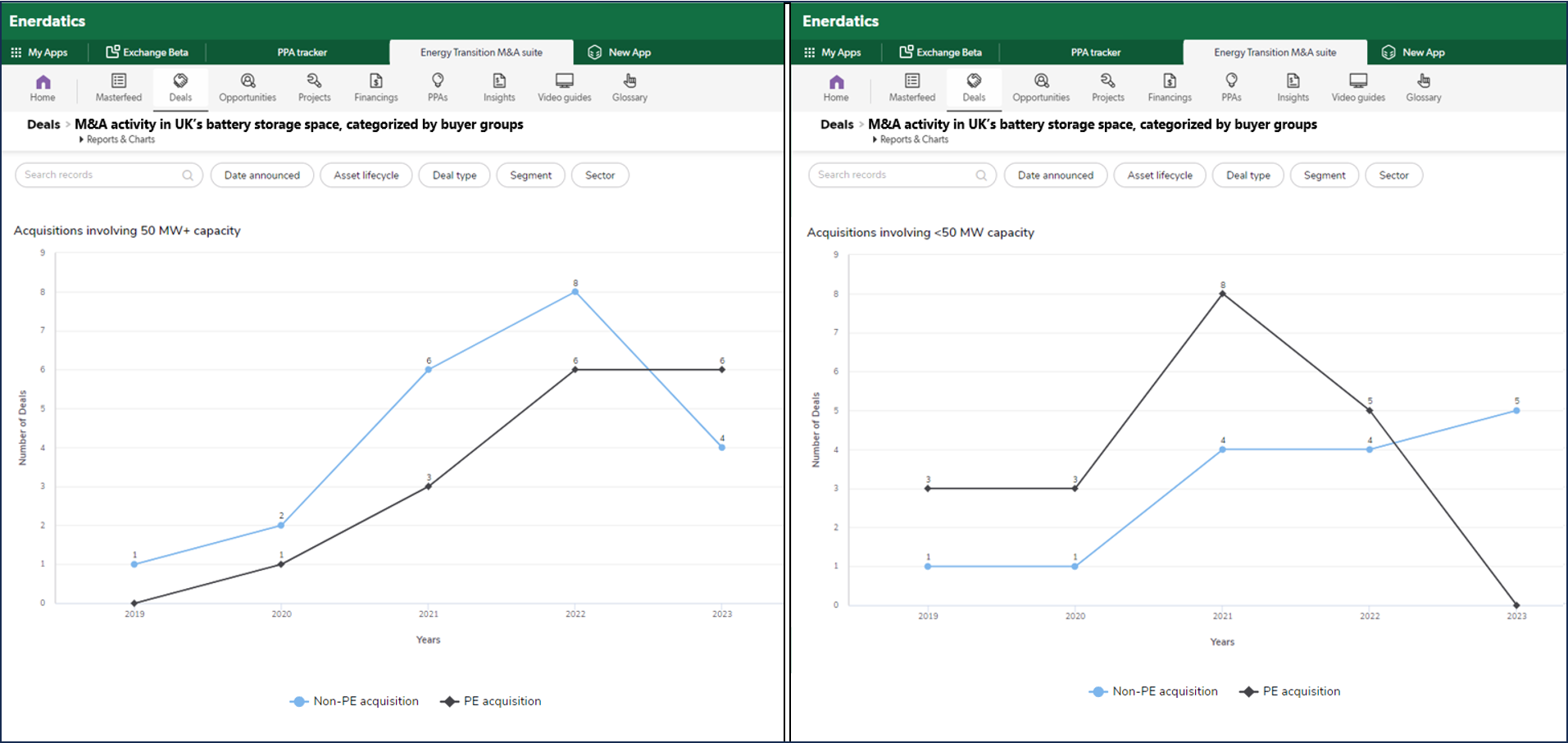
In the United Kingdom's battery storage landscape, prominent private equity entities are increasingly directing their investments towards larger portfolios and well-established firms, particularly those with storage capacities in excess of 50 MW. This strategic realignment is rooted in their heightened risk tolerance and the pursuit of augmented returns, thereby solidifying their market dominance. Conversely, utilities and standalone corporations manifest a pronounced inclination towards assets with capacities under the 50 MW mark, identifying them as their primary acquisition prospects. Such an approach by these corporations is a reflection of their prudent risk management strategy, with the objective of judiciously managing debt and streamlining operational efficiencies.
This shift in strategy by PE firms was illustrated in the recent 65% acquisition of UK-based battery storage platform Zenobe Energy by KKR and Infracapital for ~$1.1bn. The investment will give the two PE firms access to ~150 MW of operational systems as well as ~1 GW of assets under development and construction. The deal closely follows the takeover of another UK-based battery firm, Gresham House, by Searchlight Capital for $615mn.
To gain a deeper insight into M&A trends at the corporate and asset level in APAC and globally, request a trial of the Enerdatics Energy Transition M&A database today.
The above analysis is proprietary to Enerdatics’ energy analytics team, based on the current understanding of the available data. The information is subject to change and should not be taken to constitute professional advice or a recommendation.
Click to know more about Enerdatics' Renewable Energy M&A, Finance, PPA, and Projects databases.